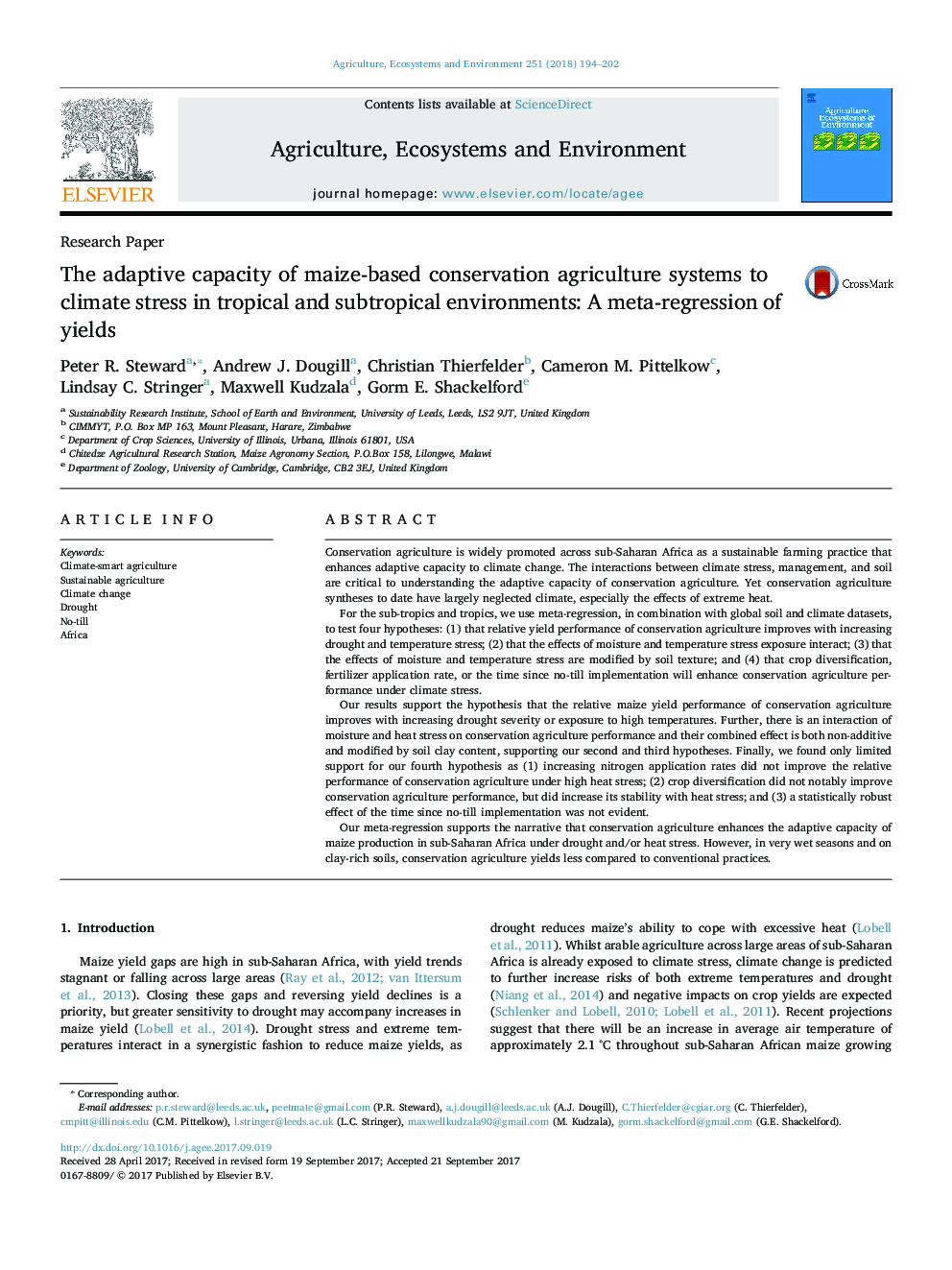| کد مقاله | کد نشریه | سال انتشار | مقاله انگلیسی | نسخه تمام متن |
|---|---|---|---|---|
| 5537788 | 1552001 | 2018 | 9 صفحه PDF | دانلود رایگان |
- Heat and moisture stress interact to affect conservation agriculture performance.
- The interaction of heat and moisture stress is modified by soil clay content.
- Conservation agriculture yields outperform conventional practice in drier seasons.
- Heat stress increases relative yield performance on low clay soils.
- N fertilizer was not required for a positive relative yield performance.
Conservation agriculture is widely promoted across sub-Saharan Africa as a sustainable farming practice that enhances adaptive capacity to climate change. The interactions between climate stress, management, and soil are critical to understanding the adaptive capacity of conservation agriculture. Yet conservation agriculture syntheses to date have largely neglected climate, especially the effects of extreme heat.For the sub-tropics and tropics, we use meta-regression, in combination with global soil and climate datasets, to test four hypotheses: (1) that relative yield performance of conservation agriculture improves with increasing drought and temperature stress; (2) that the effects of moisture and temperature stress exposure interact; (3) that the effects of moisture and temperature stress are modified by soil texture; and (4) that crop diversification, fertilizer application rate, or the time since no-till implementation will enhance conservation agriculture performance under climate stress.Our results support the hypothesis that the relative maize yield performance of conservation agriculture improves with increasing drought severity or exposure to high temperatures. Further, there is an interaction of moisture and heat stress on conservation agriculture performance and their combined effect is both non-additive and modified by soil clay content, supporting our second and third hypotheses. Finally, we found only limited support for our fourth hypothesis as (1) increasing nitrogen application rates did not improve the relative performance of conservation agriculture under high heat stress; (2) crop diversification did not notably improve conservation agriculture performance, but did increase its stability with heat stress; and (3) a statistically robust effect of the time since no-till implementation was not evident.Our meta-regression supports the narrative that conservation agriculture enhances the adaptive capacity of maize production in sub-Saharan Africa under drought and/or heat stress. However, in very wet seasons and on clay-rich soils, conservation agriculture yields less compared to conventional practices.
Journal: Agriculture, Ecosystems & Environment - Volume 251, 1 January 2018, Pages 194-202
